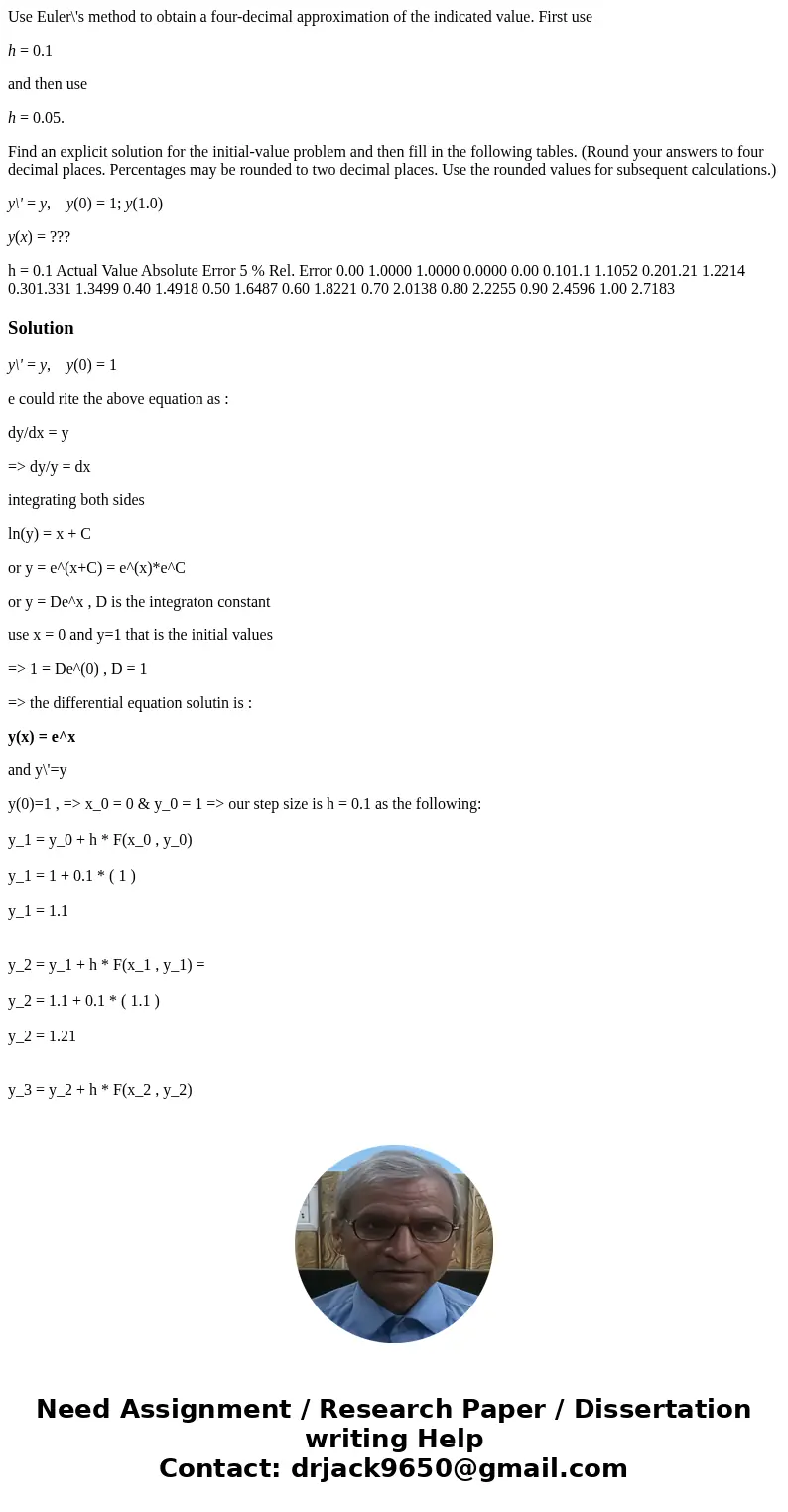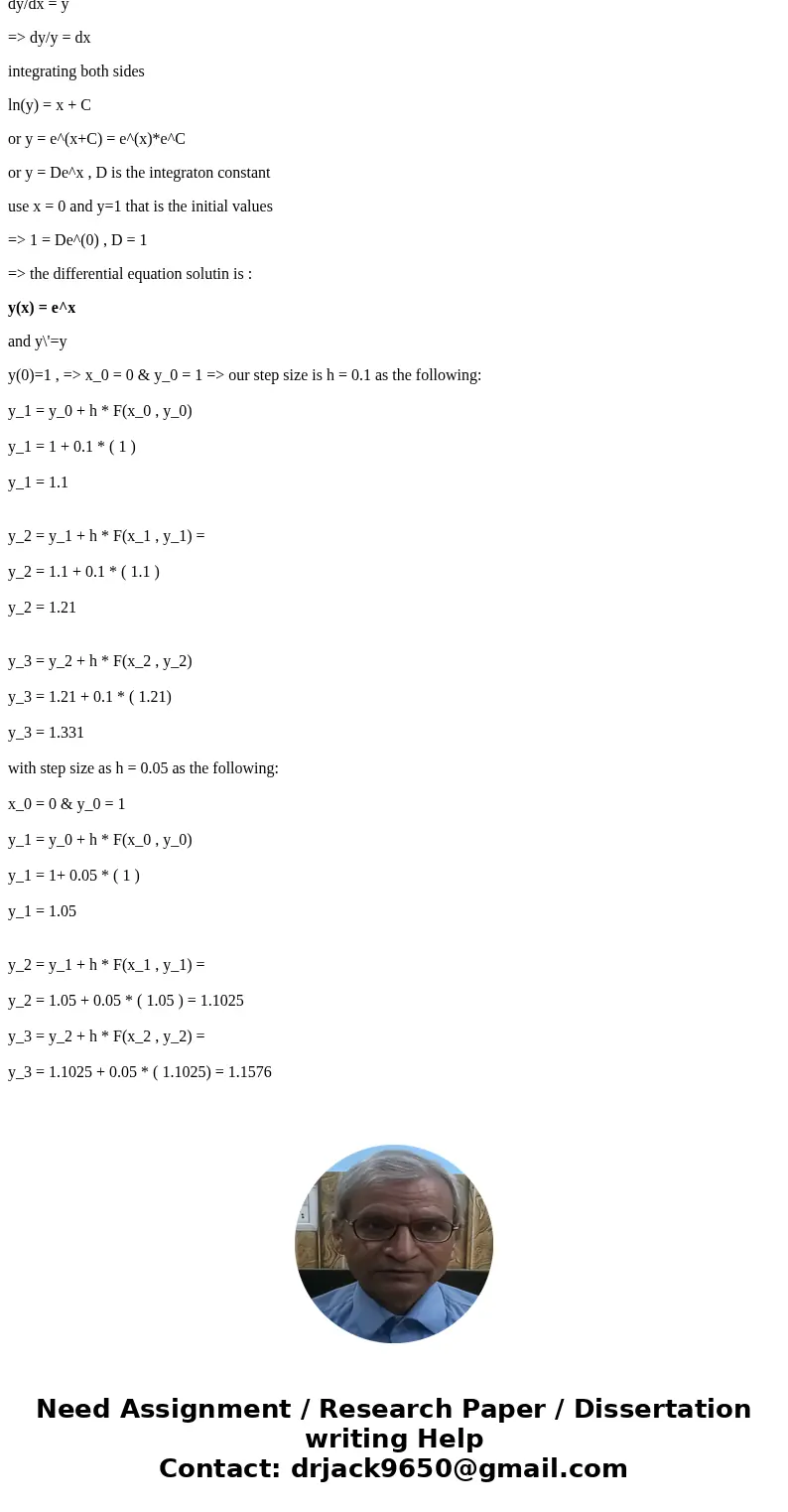Use Eulers method to obtain a fourdecimal approximation of t
Use Euler\'s method to obtain a four-decimal approximation of the indicated value. First use
h = 0.1
and then use
h = 0.05.
Find an explicit solution for the initial-value problem and then fill in the following tables. (Round your answers to four decimal places. Percentages may be rounded to two decimal places. Use the rounded values for subsequent calculations.)
y\' = y, y(0) = 1; y(1.0)
y(x) = ???
h = 0.1 Actual Value Absolute Error 5 % Rel. Error 0.00 1.0000 1.0000 0.0000 0.00 0.101.1 1.1052 0.201.21 1.2214 0.301.331 1.3499 0.40 1.4918 0.50 1.6487 0.60 1.8221 0.70 2.0138 0.80 2.2255 0.90 2.4596 1.00 2.7183Solution
y\' = y, y(0) = 1
e could rite the above equation as :
dy/dx = y
=> dy/y = dx
integrating both sides
ln(y) = x + C
or y = e^(x+C) = e^(x)*e^C
or y = De^x , D is the integraton constant
use x = 0 and y=1 that is the initial values
=> 1 = De^(0) , D = 1
=> the differential equation solutin is :
y(x) = e^x
and y\'=y
y(0)=1 , => x_0 = 0 & y_0 = 1 => our step size is h = 0.1 as the following:
y_1 = y_0 + h * F(x_0 , y_0)
y_1 = 1 + 0.1 * ( 1 )
y_1 = 1.1
y_2 = y_1 + h * F(x_1 , y_1) =
y_2 = 1.1 + 0.1 * ( 1.1 )
y_2 = 1.21
y_3 = y_2 + h * F(x_2 , y_2)
y_3 = 1.21 + 0.1 * ( 1.21)
y_3 = 1.331
with step size as h = 0.05 as the following:
x_0 = 0 & y_0 = 1
y_1 = y_0 + h * F(x_0 , y_0)
y_1 = 1+ 0.05 * ( 1 )
y_1 = 1.05
y_2 = y_1 + h * F(x_1 , y_1) =
y_2 = 1.05 + 0.05 * ( 1.05 ) = 1.1025
y_3 = y_2 + h * F(x_2 , y_2) =
y_3 = 1.1025 + 0.05 * ( 1.1025) = 1.1576


 Homework Sourse
Homework Sourse